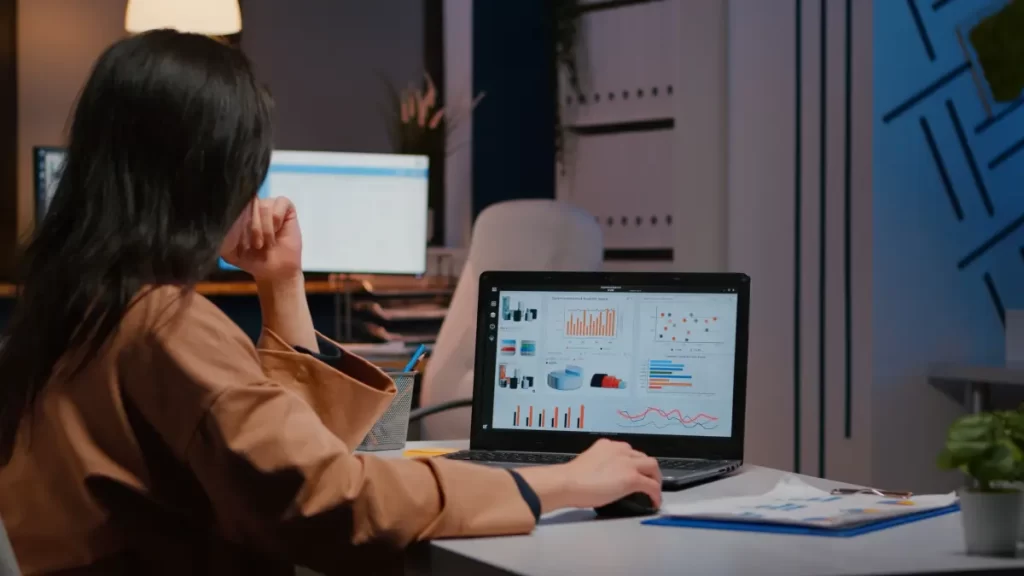Content:
- 1 Why does HIPAA compliance matter in healthcare?
- 2 Difference between a general Virtual Assistant and a HIPAA-compliant Virtual Assistant
- 3 Benefits of using HIPAA-compliant virtual services
- 4 What areas of medical work can HIPAA be applied to?
- 5 The importance of regular HIPAA training for Virtual Assistants
- 6 The growing demand for Virtual Assistants in the healthcare industry
- 7 The future of HIPAA-compliant Virtual Assistants in healthcare
- 8 How Virtual Assistants handle inquiries with accuracy and security
- 9 Selecting the best HIPAA-compliant Virtual Assistant for your medical provider
- 10 Solutions offered by GlobalTeam
- 11 FAQs on HIPAA-compliant Virtual Assistants
- 11.1 What makes a Virtual Assistant HIPAA-compliant?
- 11.2 How can a healthcare practice ensure HIPAA compliance when hiring a Virtual Assistant?
- 11.3 How do HIPAA-compliant virtual assistants ensure patient data security?
- 11.4 Can a HIPAA-compliant VA handle clinical billing and insurance claims?
- 11.5 What training do HIPAA-compliant remote receptionists receive?
- 11.6 How can healthcare providers verify that a virtual assistant is HIPAA secure?
- 12 The vital role of HIPAA-compliant Virtual Assistants in modern healthcare
A HIPAA-compliant virtual assistant plays a crucial role in healthcare settings, ensuring that medical professionals and healthcare organizations can manage administrative tasks efficiently while protecting sensitive patient health information.
These virtual assistants and HIPAA-compliant remote receptionists support clinical practices by handling patient inquiries, scheduling medical appointments, and managing patient records, all while adhering to HIPAA regulations.
Healthcare industry, managing day-to-day processes effectively is essential. Virtual assistants provide an additional layer of support by streamlining operations and allowing healthcare providers to focus on patient care.
Whether it’s handling patient requests, answering services, or maintaining confidential health information , these professionals help healthcare providers maintain HIPAA compliance in every interaction.
By leveraging virtual assistant services, medical organizations can enhance their workflow efficiency and ensure that sensitive patient information remains protected.
Virtual assistants trained in HIPAA compliance serve as a vital extension of medical staff, ensuring that every administrative task is executed with precision and adherence to security protocols.
Why does HIPAA compliance matter in healthcare?
HIPAA, or the Health Insurance Portability and Accountability Act, sets the standard for protecting patients’ data in the medical industry.
Compliance with HIPAA guidelines ensures that medical providers, hospitals, and clinics safeguard personal health information (PHI) from unauthorized access.
Any entity handling clinical billing, scheduling appointments, or managing patient records must use HIPAA-compliant tools and implement technical safeguards to protect patient privacy.
Healthcare organizations that fail to maintain HIPAA compliance may face severe penalties, data breaches, and loss of patient trust. Dental receptionists must also adhere to these regulations to protect confidential patient information.
By hiring a HIPAA-secure virtual assistant, medical providers can mitigate risks and enhance the security of sensitive patient information while improving patient satisfaction and patient experience.
Beyond regulatory requirements, HIPAA compliance helps build stronger relationships. When they feel that their personal health information is protected, they develop healthcare consumer trust, leading to higher individuals satisfaction and loyalty to their medical providers.

Difference between a general Virtual Assistant and a HIPAA-compliant Virtual Assistant
Not all VAs are trained to handle PHI. A HIPAA-compliant virtual assistant undergoes specialized training to understand HIPAA rules and security protocols.
Unlike general virtual assistants, those working in the healthcare industry are required to follow HIPAA regulations, use secure communication channels, and conduct regular risk evaluations to prevent data breaches.
Benefits of using HIPAA-compliant virtual services
Ensuring HIPAA compliance is crucial for protecting data and maintaining trust in healthcare solutions. A business associate providing virtual support must follow strict regulations to safeguard accurate information and prevent unauthorized access.
Additionally, VAs can assist with inventory management, ensuring that medical supplies are well-stocked and efficiently tracked to support seamless healthcare operations.
By leveraging HIPAA-compliant virtual services, medical providers can focus on enhancing patient care while streamlining administrative processes.
Virtual assistants help manage daily tasks within a healthcare facility, ensuring that clients receive timely responses to their inquiries.
They also handle messages, schedule appointments, and maintain organized records, enhancing overall communication between individuals and healthcare providers.
Enhanced security and privacy
One of the primary benefits of hiring a HIPAA-compliant virtual assistant is the added security in handling medical cases’ data. VAs who follow HIPAA standards use HIPAA-secure platforms and Security measures to prevent data breaches.
Conducting regular risk assessments ensures that healthcare consumer information remains confidential, reducing the likelihood of security threats.
Strict HIPAA regulations ensure that all healthcare solutions maintain high standards of security. From managing healthcare consumer records to responding to patient requests, virtual assistants trained in HIPAA compliance minimize risks and help healthcare organizations maintain their reputation as trusted providers.
Cost-effectiveness and efficiency
Hiring a compliant virtual assistant is more cost-effective than employing full-time staff. By outsourcing administrative tasks, healthcare facilities can reduce overhead costs while maintaining a high level of service.
These assistants can efficiently handle inquiries, schedule appointments, and manage communication without the need for additional office space or resources.
The ability to scale virtual assistant operations based on business needs means that medical providers only pay for the solutions they require.
This level of cost control allows medical professionals to optimize their resources while improving healthcare consumer experience. Some tasks require specialized support to ensure efficiency and compliance.
Flexibility in scaling operations
A significant advantage of HIPAA-compliant remote receptionists is their flexibility. Whether a healthcare practice needs additional support during peak hours or assistance with calls, VAs can be scaled up or down based on the clinic’s needs.
This adaptability ensures that healthcare providers can offer immediate attention to individuals while optimizing their operations.
With healthcare demands constantly fluctuating, having access to on-demand support can significantly improve day-to-day processes. This ensures that no inquiries go unanswered and that the medical industry can meet healthcare consumer needs efficiently.

Improved patient confidentiality
One of the most critical responsibilities of a HIPAA-compliant virtual assistant is ensuring the confidentiality of sensitive healthcare consumer health information. VAs follow strict HIPAA rules to protect personal health information (PHI) from unauthorized access, breaches, or cyber threats.
By implementing Security measures and using HIPAA-compliant resources, VAs provide a secure framework for managing patient data efficiently.
Enhanced patient trust and satisfaction
Building healthcare consumer trust is essential for maintaining a reputable healthcare provider. HIPAA-compliant virtual assistants contribute to satisfaction by ensuring accurate communication, protecting information, and responding to inquiries promptly. Their ability to manage messages, coordinate contact, and support medical providers enhances the overall experience.
What areas of medical work can HIPAA be applied to?
Clinical billing and coding
Medical billing is a time-consuming task that requires accuracy and compliance with industry regulations. HIPAA-compliant VAs assist with verifying insurance claims, processing payments, and ensuring that all records meet HIPAA standards.
Their expertise reduces errors, prevents claim rejections, and allows medical providers to streamline their day-to-day operations.
Patient appointment scheduling
Managing medical appointments efficiently is crucial for maintaining an organized healthcare facility. HIPAA-compliant remote receptionists handle scheduling tasks, send appointment reminders, and reschedule visits when necessary.
By managing incoming calls and coordinating inquiries, remote receptionists ensure that clients receive timely care, leading to better patient satisfaction.
Telemedicine services
The rise of telemedicine has increased the demand for HIPAA-compliant virtual assistants who can support remote patient care.
These professionals assist with coordinating virtual consultations, handling patient records, and ensuring secure communication between medical providers and individuals. By managing administrative tasks efficiently, VAs improve healthcare consumer experience and allow clinical providers to focus on direct patient care.

The importance of regular HIPAA training for Virtual Assistants
To maintain HIPAA compliance, virtual assistants must undergo continuous training on HIPAA guidelines and security practices.
This includes understanding new HIPAA rules, learning how to handle sensitive patient information, and staying updated on cybersecurity threats. Regular training ensures that virtual assistants remain competent in protecting medical cases’ data and following best practices in healthcare solutions.
The growing demand for Virtual Assistants in the healthcare industry
As the healthcare industry evolves, the demand for HIPAA-compliant virtual assistants continues to rise. Healthcare facilities and medical providers are increasingly relying on virtual assistants to manage administrative workloads, enhance healthcare consumer experience, and ensure compliance with HIPAA standards.
The shift towards digital healthcare solutions has made virtual assistants an essential part of modern healthcare solutions.
The future of HIPAA-compliant Virtual Assistants in healthcare
The role of HIPAA-compliant virtual assistants is expected to expand as healthcare organizations continue to embrace digital solutions.
With advancements in AI, automation, and secure communication technologies, virtual assistants will play an even greater role in supporting healthcare providers, improving efficiency, and maintaining HIPAA compliance. The integration of virtual assistants in medical providers is shaping the future of healthcare consumer care.
How Virtual Assistants handle inquiries with accuracy and security
Responding to patient requests requires precision and security to protect sensitive patient information. HIPAA-compliant virtual assistants are trained to provide precise data, verify patient identity, and handle calls with professionalism.
By ensuring that all communication follows HIPAA guidelines, virtual assistants play a crucial role in maintaining patient trust and compliance.
Selecting the best HIPAA-compliant Virtual Assistant for your medical provider
Choosing the top choice for a HIPAA-compliant virtual assistant position requires evaluating their relevant experience, work ethic, and knowledge of HIPAA standards.
Medical organizations should look for virtual assistants who have been trained in HIPAA compliance, demonstrate strong communication skills, and use HIPAA-secure platforms. Finding the right virtual assistant can streamline operations and enhance the overall efficiency of a medical provider.
Solutions offered by GlobalTeam
Overview of HIPAA-compliant Virtual Assistant and receptionist services
At GlobalTeam, we offer a range of HIPAA-compliant virtual assistants, dental office assistants and remote receptionist services tailored to the needs of medical organizations.
Our live virtual receptionists are trained to manage patient calls and patient requests while maintaining HIPAA compliance.
Key solutions include:
- Answering services for clinical practices
- Managing patient records and clinical billing
- Handling patient requests with accuracy and professionalism
- Scheduling appointments and managing day-to-day processes
- Implementing HIPAA-compliant resources to protect sensitive patient health information
Our team ensures that all healthcare solutions are delivered with efficiency, confidentiality, and the highest standard of security, providing medical professionals with the support they need.
Choosing a trusted provider like GlobalTeam means gaining access to relevant experience, high-quality customer service, and a commitment to HIPAA compliance. Our best candidates are selected based on skills, work ethic, and expertise in healthcare industry operations.

FAQs on HIPAA-compliant Virtual Assistants
What makes a Virtual Assistant HIPAA-compliant?
A HIPAA-compliant VA follows strict HIPAA regulations to ensure the security of patient information. This includes using HIPAA-compliant platforms, encrypting messages, and conducting regular risk evaluations.
By hiring a compliant VA, medical practices can rest assured that their sensitive patient information is handled securely and in compliance with federal regulations.
How can a healthcare practice ensure HIPAA compliance when hiring a Virtual Assistant?
Medical practices should verify that the assistant has relevant experience in HIPAA regulations and uses HIPAA-compliant tools. Partnering with a trusted provider like GlobalTeam ensures that the top choice is selected based on skills and work ethic.
A strong hiring process that includes HIPAA training, background checks, and regular risk evaluations can further ensure compliance and patient trust.
How do HIPAA-compliant virtual assistants ensure patient data security?
HIPAA-compliant VAs follow strict security protocols, including data encryption, access controls, and regular risk assessments to protect sensitive patient health information.
Can a HIPAA-compliant VA handle clinical billing and insurance claims?
Yes, many HIPAA-compliant VAs are trained to assist with clinical billing, insurance verification, and claims processing while ensuring compliance with HIPAA regulations.
What training do HIPAA-compliant remote receptionists receive?
HIPAA-compliant remote receptionists undergo specialized training on HIPAA regulations, secure patient communication, and handling protected health information (PHI) with confidentiality.
How can healthcare providers verify that a virtual assistant is HIPAA secure?
Healthcare providers should confirm that the virtual assistant uses HIPAA resources tools, follows Security measures, and has relevant experience in handling PHI according to HIPAA standards.
The vital role of HIPAA-compliant Virtual Assistants in modern healthcare
Hiring a HIPAA-compliant virtual assistant is a strategic decision for healthcare providers looking to enhance efficiency, patient care, and security.
With the increasing demand for healthcare services, having dedicated VAs ensures that day-to-day processes run smoothly while maintaining HIPAA compliance.
By leveraging VA services, medical organizations can optimize processes, protect sensitive patient data, and improve experience.
These professionals play a vital role in ensuring patient satisfaction, handling administrative tasks, and providing medical providers with the support needed to focus on direct patient care. Hourly rates may be higher for specialized solutions that require advanced training and experience.
GlobalTeam offers compliant virtual assistants with the relevant experience to meet the demands of the medical industry.
Whether it’s managing patient records, handling calls, or maintaining technical safeguards, our team is committed to excellence.
For healthcare professionals seeking to enhance their medical provider while ensuring compliance with HIPAA regulations, hiring a HIPAA-compliant virtual assistant is the best solution for maintaining a secure and efficient operation.
HIPAA-compliant virtual receptionists play a crucial role in any practice by managing administrative tasks while safeguarding patient data. PHI includes medical histories, test results, and other sensitive information that must be handled with strict compliance.

